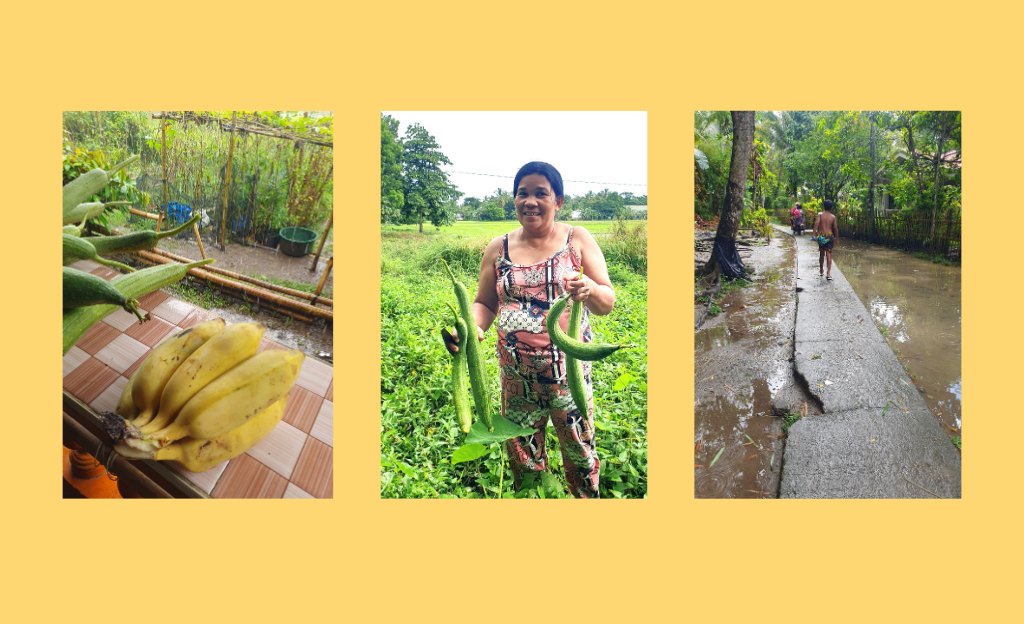In Tamil Nadu, South India, a Dalit women’s self-help group raises seedlings and grows trees. Many they sell but some they donate to school children or plant in their community. The women may have the tiniest carbon footprints but they are planting trees to absorb harmful emissions.
Sharing Climate Hope
In one area of Tamil Nadu, in South India there is a small non-governmental organisation tackling poverty and discrimination in 120 villages. The Social Action for New Development (SAND)Trust was founded in 1986 by nine social workers with the ultimate aim of lifting people from backward communities and low income families out of poverty forever (in their words). It may not have achieved that goal quite yet, but with 57,567 members it has made huge strides, especially in Dalit communities.
Researchers for the State Government predict temperatures will rise by more than 3 degrees Celsius and sea levels by 30 centimetres. Knowing how much harm this may cause, SAND is teaching people who have some of the tiniest climate footprints about the impact of climate change. They want to protect their children’s future and their livelihoods.
One of SAND’s programmes facilitates self-help groups for women who sometimes face harsh discrimination. Many are sanitary workers who have improved protection and wages thanks to SAND’s advocacy work. Some groups have formed cooperatives. One started a nursery. The women sell small plants and seedlings to earn much needed income for their families. SAND teaches school children how to care for their environment and the cooperative provides small trees for them to plant at school. Because they know about the climate crisis, they are doing what they can to increase the ground cover in a very dry locality.
Climate change is already making life harder, but SAND knows more can be done to protect people and the planet.
Dalit children plant young trees on their school grounds as part of their environmental awareness training. The trees have been grown by a local self-help group in their plant nursery. SAND trains and supports these women-led cooperatives and small businesses to improve family livelihoods and the lives of Dalit women.
No one forgets a massive Disaster
In 2013 one of the most powerful cyclones ever recorded swept through Aklan in the Philippines where our partner, Developers is based. While Typhoon Haiyan destroyed or damaged housing and crops, it could have been much worse if these coastal communities did not have plans in place to respond to a disaster.
Up until a few years ago, planting more banana trees and starting a small garden would have been enough to help hungry families when there were no fish to catch. However, marine life has become further depleted and small-scale fishing often produces no results. Adonita is one woman who has fished for as long as she can remember. At 79 years old, she says her family now relies on the food that her daughter Oneida produces. Thanks to plants, materials and encouragement from the small staff team at Developers, she has been able to expand her garden.
According to Adonita, it is the combination of climate change and big fishing nets that have made their lives so much harder. Losing Oneida’s husband also affected the family’s livelihood. Oneida’s oldest two children left Tabon Island to find work in Manila.
The planting drives organised by Developers on this climate-vulnerable island have been a real help. Oneida planted root crops on the side of a hill, and in pots and raised beds on the flatter ground to protect them from the heavy rains. A bamboo drain carries water around her house and away from her garden. With a small loan from Developers’ Livelihood Revolving Fund, she employed students to dig a well where she can store water for the dry season.
Oneida explains, “Having my own garden has allowed me and my family to have a constant supply of healthy food. I can also share or sell my excess produce. I do not have to rely on my children in Manila and I can send my younger children to school.”
Growing a New Future
In Nicaragua, Ramona is one woman who is prepared for the rising temperatures that Central America is facing. After attending eight workshops on agro-ecological farming organised by our partner CEPAD, she has a flourishing garden containing 15 different crops.
“If the rainy season is very strong, my plants can tolerate it, especially the plantains and papaya. If the rainy season isn’t very strong, then I have other plants that don’t need as much water, like yucca (cassava). The crops that have a shorter growth cycle also meet our dietary needs like cucumber, squash, and corn.”
“I have hope that my land will produce food all the time. I believe I’m better prepared to be less affected by climate change.”
Your gifts to the Climate Appeal will help families adapt to the changing climate and build their resilience.
Read as a PDF.
Thanks to SAND, Kathlene Soo and CEPAD for the photos and stories.
Share Climate Hope
Right now, the global climate is warming. The race is on to help people adapt to the changing conditions. A donation to the Climate Appeal will support the work of our partners with some of the most vulnerable communities.
With:
- $50 could teach small-scale farmers to grow new crops in a changing environment.
- $118 could pay for tubers, seedlings, tools and planting materials for a family in the Philippines to start a raised garden.
- $275 will train and mentor a Dalit women community leader in India.




